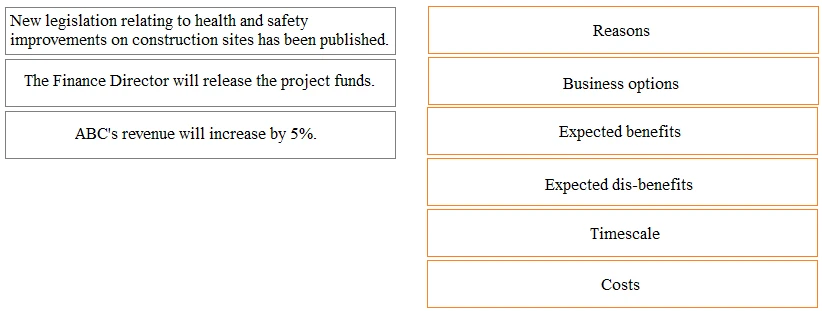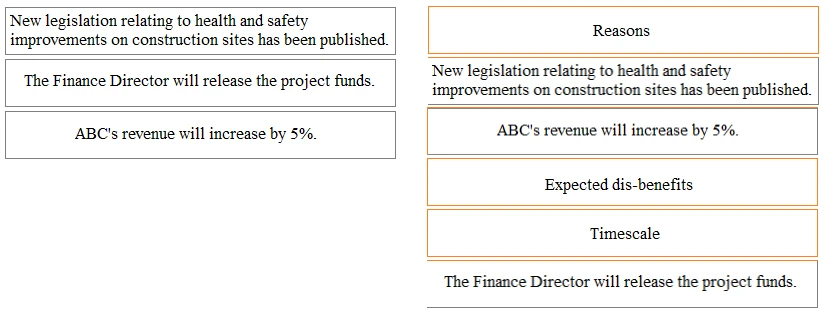The Executive is responsible for assessing and updating the Business Case at the end of each stage. This is a crucial aspect of ensuring that the project remains viable and aligned with its business objectives throughout its lifecycle. Ensuring the desired outcome of the project is specified is usually a collective responsibility involving various stakeholders. The Benefits Review Plan, both during and post-project, typically falls under the Project Manager's responsibilities.
BUSINESS CASE -
Here are three statements from the business case for the Health and Safety Project.
Under which heading in the business case (A-F) should they be recorded?
Choose only one heading for each statement. Each heading can be used once, more than once, or not at all.
Select and Place:


Why is the executive's decision to deliver the benefits early appropriate for managing the business case?
Delivering the outputs incrementally, like starting to sell the 'e-learning course' as soon as it is accredited, will allow the business case to be justified earlier. This is beneficial because it helps to demonstrate value sooner and provides early returns, ensuring that the business case remains robust and aligned with business objectives.
The change to project scope was approved and the cost of ֲ£2,500 was paid for from the change budget. The project manager documented an increase of ֲ£2,500 in the project budget in the business case.
Is this an appropriate action, and why?
No, because the use of the change budget means that the project budget does not need to be increased. The change budget is specifically allocated for unforeseen changes or modifications during the project. When a cost is covered by the change budget, it does not affect the overall project budget, which remains reserved for the original scope of the project.
When updating the project plan as part of managing a stage boundary, the Business Case might also be updated. This is because the Business Case needs to reflect the current status of the project, including any changes in objectives, benefits, costs, and risks. Ensuring the Business Case is up-to-date guarantees that the project remains viable and aligned with its goals.